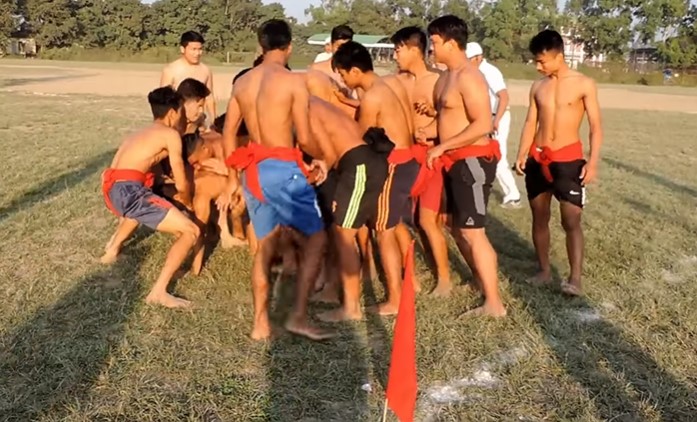YubiLakpi – The Indian Ruby with mythical significance: India provides a home to a plethora of sports. Eventually, it evolved into well-known games, and identifying these sporting activities may take someone on a cultural journey. YubiLakpi is one such game. The term appears to be a bit difficult, and most Indians may be unaware of it. It is an ancient seven-a-side game of football played in the region of Manipur, India. It is quite a mixture of both Rugby and Football football. Moreover, it is contested using coconut instead of any kind of ball.
Manipur residents also say that contemporary rugby is a modernized form of YubiLakpi. However, it cannot be argued that it is identical to football or rugby since YubiLakpi as a sport has its own distinct flavor.
Mythical significance:
YubiLakpi holds a traditional connotation and provenance. It’s related to ethnic Hinduism. According to accounts, it began as a ceremonial re-enactment of the celestial stealing of the elixir pot after the grand event of Samudra Manthan. Basically, we know it as the finest incident described in the Bhagavata Purana, Vishnu Purana, and Mahabharata. As a result, the origins of this Indian sport have a traditional and mythical significance.

During the celebration of Shri Shri Govindajee’s Yaoshang Fiesta, There is a ceremonial game at the palace pitch in the attendance of royals. Some games are there at the BijoyGovinda Temple field. The sport has royal connections, and the prime goal was to offer coconut to the Monarch or the leader of the royal bloodline.
How to play:
This sport translates literally to “coconut grabbing,” which explains the core concept. On either side of the pitch, seven men line up. There is an umpire and, like in-game of cricket, a toss is held, but unlike a coin, the referee tosses a coconut. The player attempts to tote the coconut in order to score goals. Meanwhile, the opposite team attempts to seize the coconut. To secure a win, the player must cross the goal line.
Also, the coconut should be under the arm rather than against the player’s chest. Finally, the player with the most goals wins the award. It is a one-on-one game. The athletes should be aware of the penalties and the regulations. The participants can not kick or indeed hit their opponents. Moreover, they can not assault competitors who do not hold the coconut. The judge or referee has the power to call fouls.
Present-Day Situation:
Many people are unfamiliar with the terminology of this sport, despite the fact that it is a classic game. There were numerous efforts to resurrect and disseminate it. Moreover, we experienced so many creations about great sports figures, events, and even games in our day and age. Omung Kumar, a well-known director, has also planned a similar effort for YubiLakpi. He claimed that his motivation for making the film is to raise awareness of the lesser-known sport, as well as to show and track the path of the Indian Rugby Team.
Read More: Gilli Danda, an amateur sport of rural India, How it started and how it is going